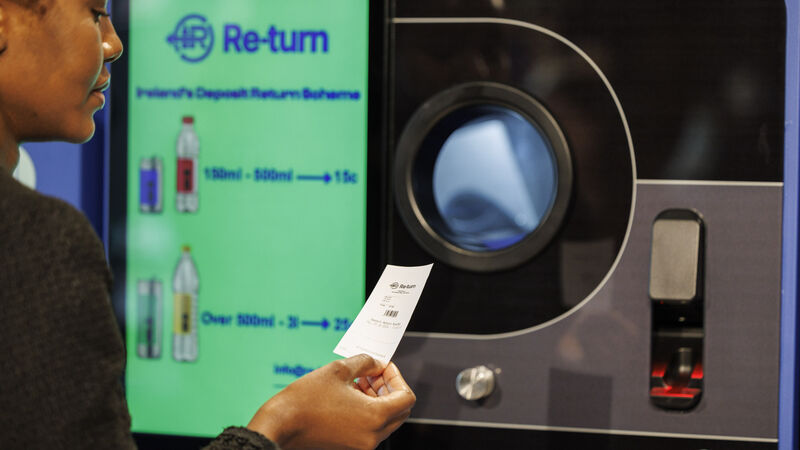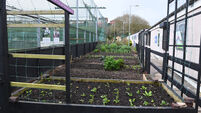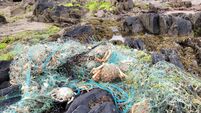Re-turn deposit return scheme helps reduce litter, according to IBAL and An Taisce

Since February, Irish shoppers have been paying a deposit of 15c or 25c on most plastic drinks bottles which they can recycle at Re-turn machines which issue a voucher to reclaim the value of the deposit. Picture: Andres Poveda
The introduction of the Government’s Deposit Return Scheme has led to an overall improvement in the level of litter on Irish streets.
The first national litter survey, undertaken by An Taisce on behalf of Irish Business Against Litter (IBAL) since the introduction of the scheme, has seen a rise in towns reaching the upper tier of cleanliness.













